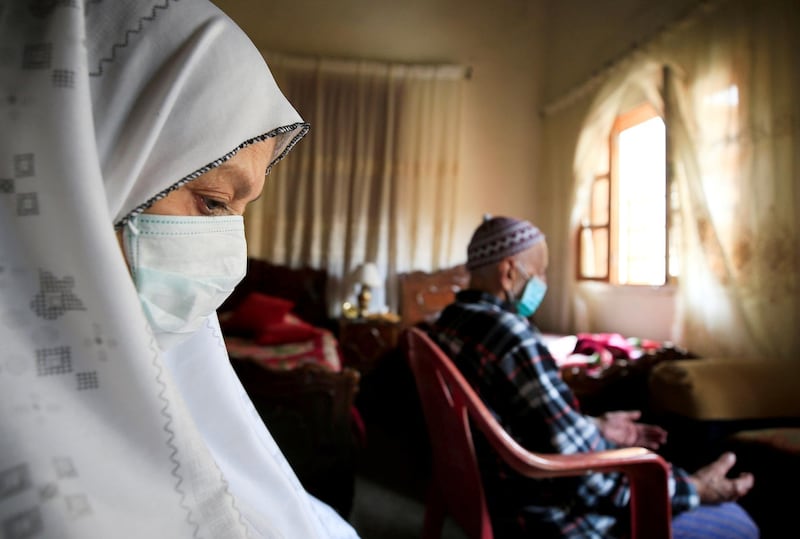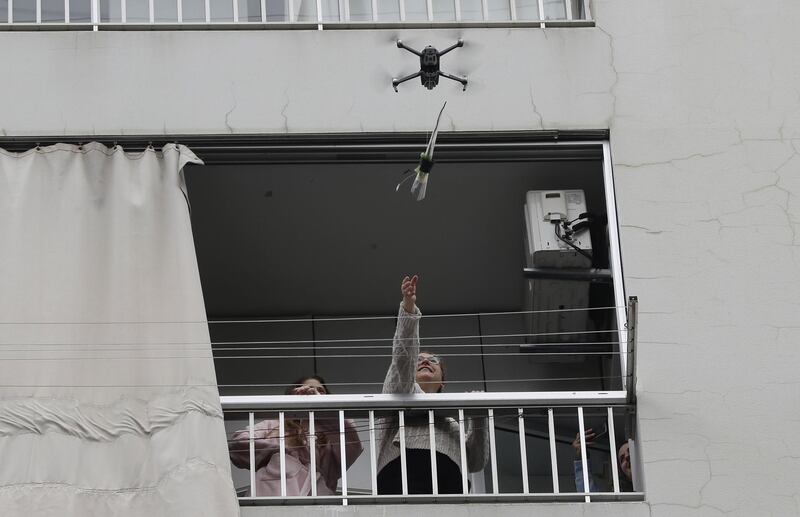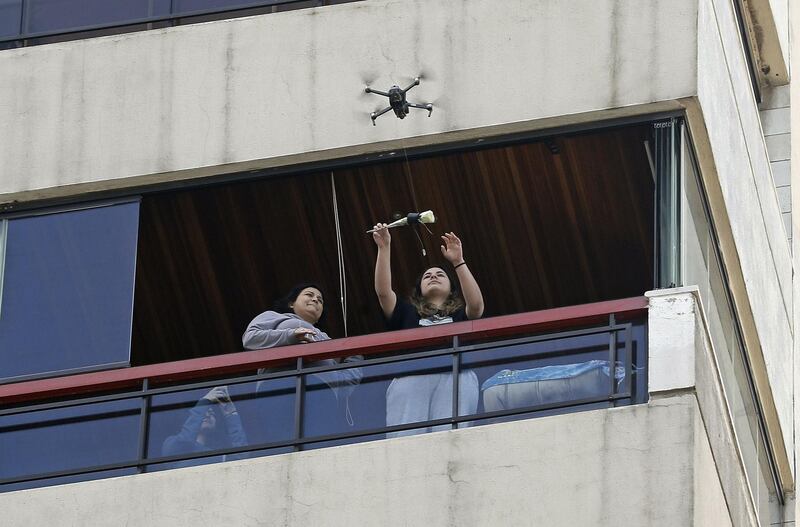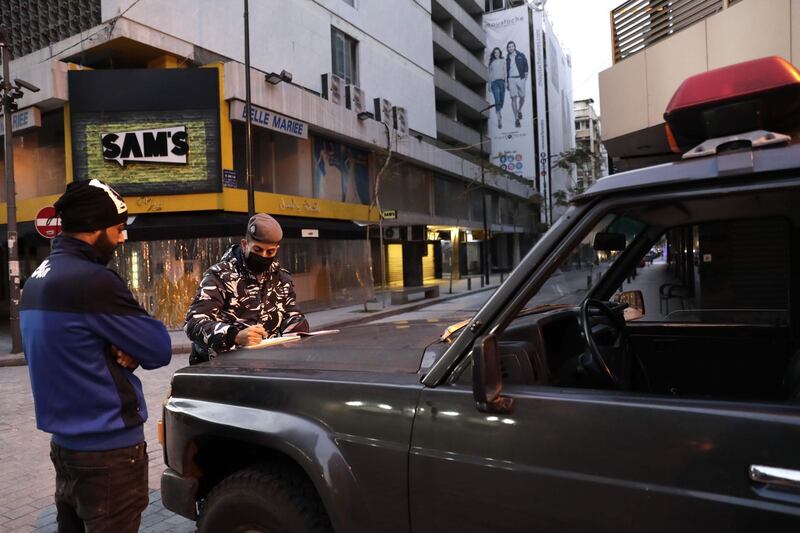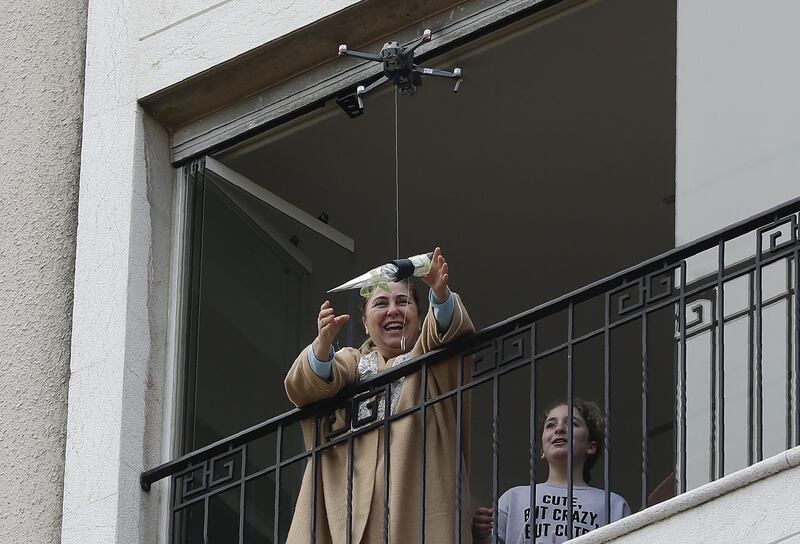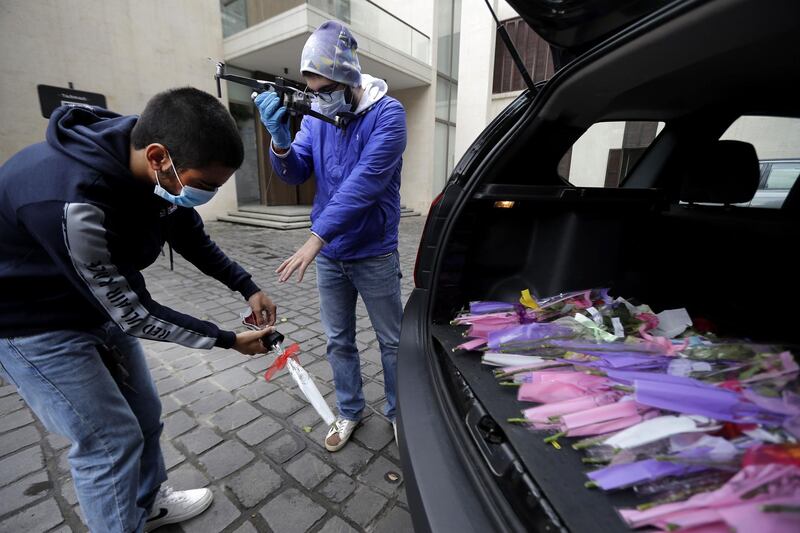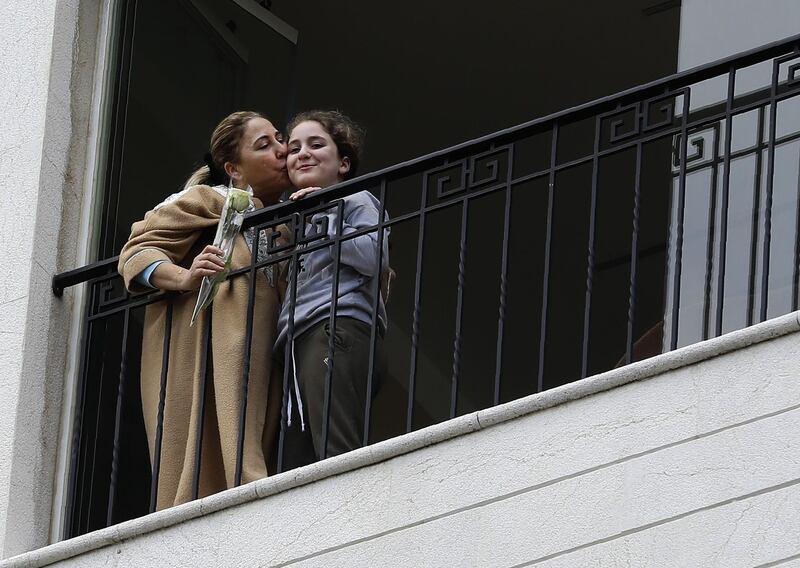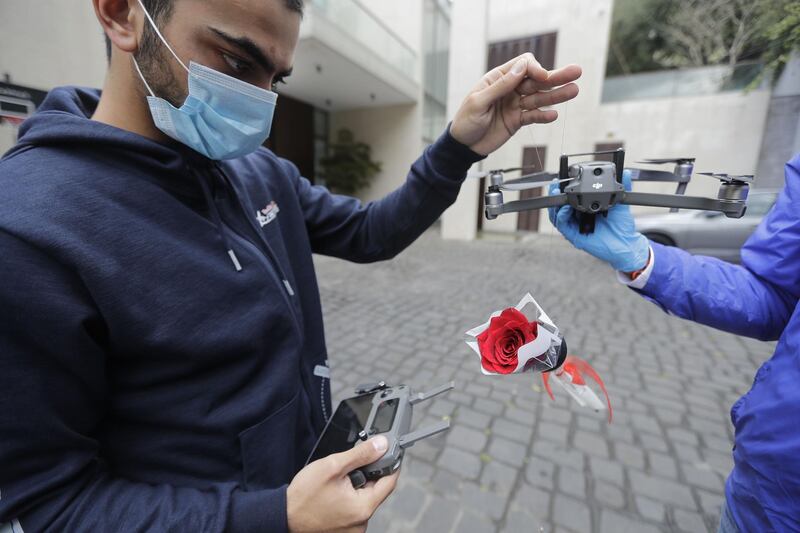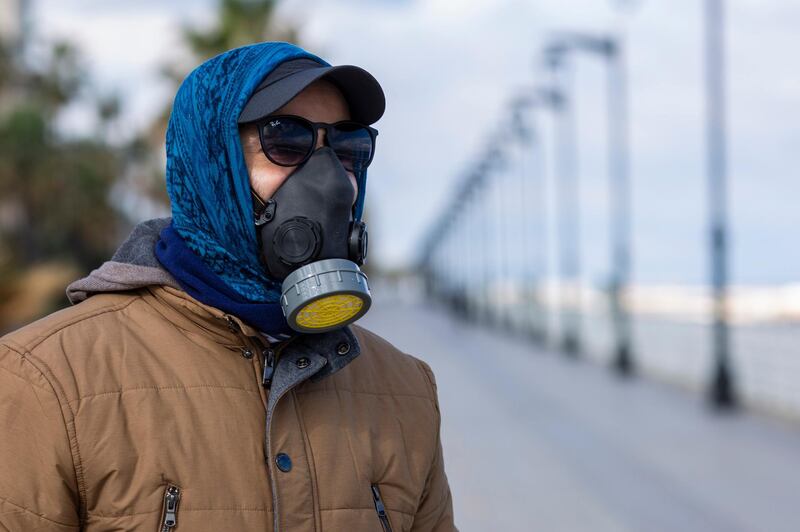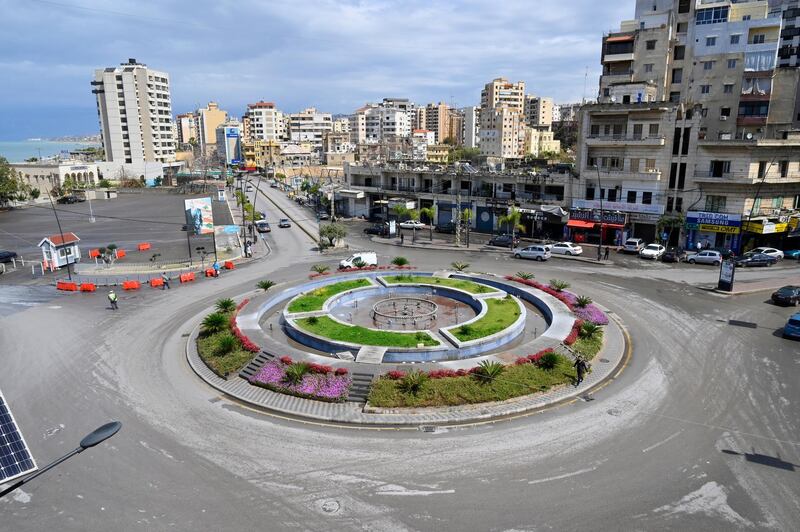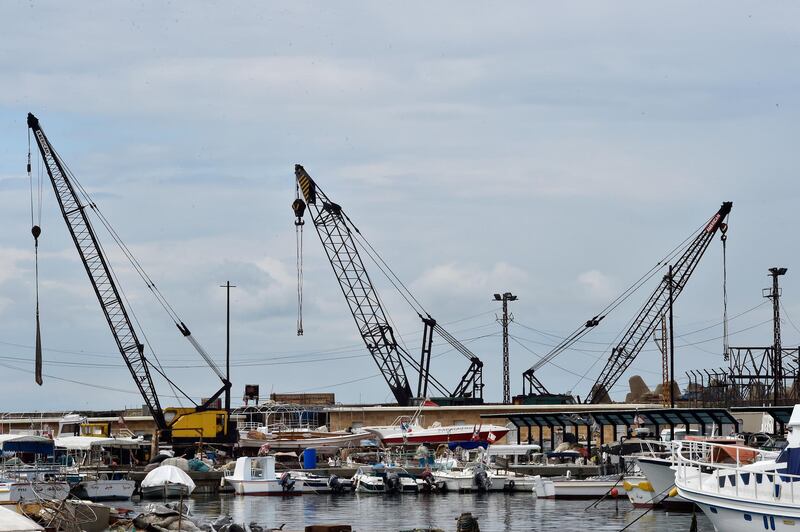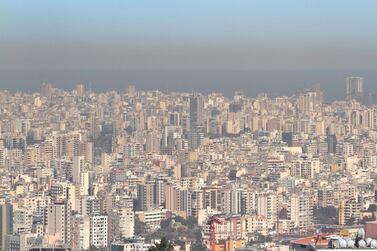When the Lebanese uprising broke out in October, the non-violent protest movement made the Hezbollah-allied speaker of parliament a poster child of the corruption plaguing the country.
As Hezbollah and its partners in power recovered from the initial shock of mass dissent, the government used violence against the demonstrators, dealing a final blow to the protest movement.
The coronavirus, however, has revived the biting sarcasm that emerged with the uprising.
A photo circulating on social media and on WhatsApp emulates a breaking news video shot of Nabih Berri, the 82-year Lebanese parliament speaker.
“Berri came into contact with Covid-19,” the caption reads. “The virus is now in quarantine.”
The renewed proliferation of jokes against powerful players highlights Lebanon as one of the few countries in the Middle East with marks of a historically open society.
The jokes signal societal resilience despite financial meltdown that lost the lira more than 80 per cent of its value and significant influence of ideological allies of Iran and the Syrian regime in the government and security apparatus.
A home video shows a Lebanese woman wearing gloves and vigorously washing a wad of liras in the kitchen sink, mocking official coronavirus guidelines.
Repeating an Arab expression to describe junk, she says: “We will soak them and drink their water.”
Armed supporters of Mr Berri last year assaulted marchers in south Lebanon who demanded his downfall.
His loyalists traced and beat up people who mocked him on social media as a main beneficiary of a system of spoils amid economic malaise.
With the coronavirus, humour is breaking more taboos about criticising pillars of the political system, some of whom have used violence to crush their peaceful opponents, despite the official end of the civil war in 1990.
Mr Berri’s wife, Randa, who is active in business, is being depicted on social media as calling in to a virus donation show on local television, not to contribute, but to demand a commission from the proceeds.
The 82-year-old Mr Berri had withstood several attempts to remove him since the Syrian regime installed him three decades ago.
Mr Berri was a staunch ally of former Syrian president Hafez Al Assad and a main instrument of the consolidation of the late dictator’s grip over Lebanon.
Mugshots, one next to the other, berate Mr Berri and other senior members of the political class, who in between them possess billions of dollars, for not having made any known contributions to counter the coronavirus.
Lebanon’s Health Ministry asked the public for donations this month, but social media exploded with advice not to trust the government.
Activist Gino Raidy, who has 72,000 followers on Instagram, put up a message against donating to “the authorities of pillage”.
Mr Raidy urged people to donate to the Lebanese Red Cross, whose credibility as an actual institution traces back to the civil war.
Even Hezbollah leader Hassan Nasrallah, whose supporters usually rush to silence any criticism of him, has not been immune to the jokes.
Photos of Mr Nasrallah online are doctored to show the black turbaned overlord donning a white laboratory coat and a stethoscope around his neck.
Mr Nasrallah said in a speech last week that the “battle experiences of the resistance” should be emulated to fight the virus.
Although Mr Nasrallah said he is not a scientist, he described the coronavirus as “an unknown element”.
The directions of the Health Ministry, which Hezbollah controls, should be followed, Mr Nasrallah said, while touting the response of Iran to the virus. Lebanon’s government, which is supported by Hezbollah, for weeks kept flights running from Iran.
Trying to allay fears of open borders with Syria, Mr Nasrallah said Hezbollah fighters returning from Syria were being tested for the virus.
In areas under President Bashar Al Assad’s control there has been no public divergence from official assertions that the regime has excelled in containing the coronavirus. Officially there is only one case in the country.
Even Soviet-style jokes about the ruling Baath Party dried up after the Russian intervention in 2015 propped up the regime.
Several Syrians The National contacted in Damascus were scared to talk about the coronavirus situation, hinting that the regime still has formidable telecommunications monitoring capabilities.
But Syrian regime propaganda in some cases has spared the Lebanese effort to invent comedy.
One Lebanese physician saw a video clip on a work WhatsApp group of a Syrian official saying that “lots of countries” are emulating the regime’s response to the coronavirus.
“We have become a reference in the last three months. Our plan became a model everyone should follow,” Hazar Raef, head of Damascus Municipality Health Department, told state TV.
The Lebanese doctor, who is a surgeon, said that when he listened to Ms Raef, he thought it was a mock interview about the Syrian regime’s lack of preparedness.
“I thought it was a joke,” he said.
